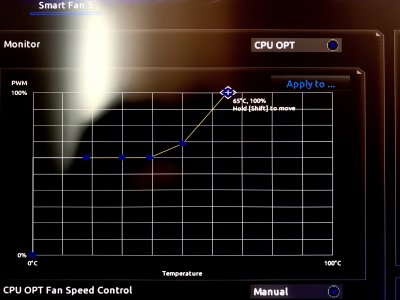- Joined
- Jan 7, 2011
- Messages
- 73
- Motherboard
- GIGABYTE Z490 Vision D
- CPU
- i9-10900
- Graphics
- RX 6800 XT
- Mac
@CaseySJ Two small questions! 
1) Is it possible for OpenCore to boot Legacy Windows 10? I enabled BIOS CSM support and checked LegacyEnabled in OpenCore Configurator. It didn't help. No disk in the boot options (though I can boot it up from BIOS).
2) I noticed CPU fan accelerates and decelerates all the time. Is there a way to "edit fan response curve"? To make it spin with the same speed most of the time.
Thanks again!
1) Is it possible for OpenCore to boot Legacy Windows 10? I enabled BIOS CSM support and checked LegacyEnabled in OpenCore Configurator. It didn't help. No disk in the boot options (though I can boot it up from BIOS).
2) I noticed CPU fan accelerates and decelerates all the time. Is there a way to "edit fan response curve"? To make it spin with the same speed most of the time.
Thanks again!

